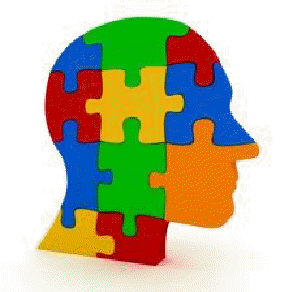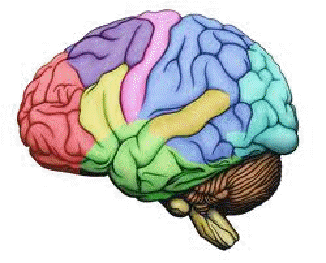 People who have been severely traumatised in childhood often present in adulthood with difficult-to-treat psychiatric disorders. The emotional states resulting from early trauma are seen as dysregulated, not readily amenable to soothing by the sufferer or those around him or her, and they may present as depression or anxiety or complex posttraumatic stress disorder (complex PTSD). The efforts to restore a regulated, soothed, comforted, emotional state may include deliberate self-harm, substance abuse, binge eating and compulsive behaviours: because these are often harmful they are referred to as dysfunctional behaviours. Sufferers will attract many different diagnoses, especially if dissociation has been one of the involuntary survival strategies, and they may be included in any one of many different treatment programmes aimed at symptom reduction and stabilisation. Often there will be no acknowledgement of the origins of the disorder in childhood trauma for fear of further destabilisation. This is therefore a group of clients/patients for whom it is difficult to access a coherent service provision. Where the trauma has arisen in the early attachment experiences of the person (Lyons-Ruth et al 2006) there may even be no obvious history of abuse: one of our aims is to increase awareness and identification of these clinical presentations.
People who have been severely traumatised in childhood often present in adulthood with difficult-to-treat psychiatric disorders. The emotional states resulting from early trauma are seen as dysregulated, not readily amenable to soothing by the sufferer or those around him or her, and they may present as depression or anxiety or complex posttraumatic stress disorder (complex PTSD). The efforts to restore a regulated, soothed, comforted, emotional state may include deliberate self-harm, substance abuse, binge eating and compulsive behaviours: because these are often harmful they are referred to as dysfunctional behaviours. Sufferers will attract many different diagnoses, especially if dissociation has been one of the involuntary survival strategies, and they may be included in any one of many different treatment programmes aimed at symptom reduction and stabilisation. Often there will be no acknowledgement of the origins of the disorder in childhood trauma for fear of further destabilisation. This is therefore a group of clients/patients for whom it is difficult to access a coherent service provision. Where the trauma has arisen in the early attachment experiences of the person (Lyons-Ruth et al 2006) there may even be no obvious history of abuse: one of our aims is to increase awareness and identification of these clinical presentations.
 Those with the most severe complex trauma disorders are those who experienced severe emotional abuse or neglect in their early attachment relationships and then had the damage compounded by physical or sexual abuse. When there is nobody to turn to for help dissociation from the pain and isolation is the only survival strategy available. This may come at the cost of changes in the structure of the developing brain: there is, in some severe dissociative disorders, evidence of significant reductions in the volume of structures such as the hippocampus and the amygdala. Those who have structural brain changes as a result of abuse and neglect from birth onwards are often invalidated by being offered 10 sessions of CBT for depression or anxiety – symptoms treated in isolation from their causes. A gastroenterologist who treated nausea with medication whether it arose from indigestion or gastric cancer would rightly be not taken seriously; yet psychiatry continues to see a similar process as an evidence-based, rational approach.
Those with the most severe complex trauma disorders are those who experienced severe emotional abuse or neglect in their early attachment relationships and then had the damage compounded by physical or sexual abuse. When there is nobody to turn to for help dissociation from the pain and isolation is the only survival strategy available. This may come at the cost of changes in the structure of the developing brain: there is, in some severe dissociative disorders, evidence of significant reductions in the volume of structures such as the hippocampus and the amygdala. Those who have structural brain changes as a result of abuse and neglect from birth onwards are often invalidated by being offered 10 sessions of CBT for depression or anxiety – symptoms treated in isolation from their causes. A gastroenterologist who treated nausea with medication whether it arose from indigestion or gastric cancer would rightly be not taken seriously; yet psychiatry continues to see a similar process as an evidence-based, rational approach.
